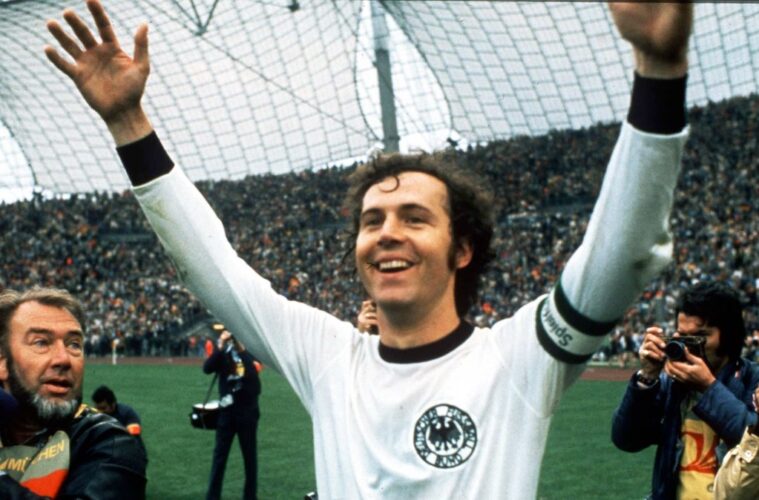German icon Franz Beckenbauer has been laid to rest south of Munich after his passing aged 78, near to where he was born in the months after World War II and grew to make his name with Bayern Munich, en route to becoming one of the nation’s most beloved figures.
Beckenbauer was a driving force as Bayern embarked on a decade of dominance after their promotion to the German top flight in 1965, winning four League titles & four DFB Cups, three European Cups, and the European Cup Winners’ Cup.
Internationally, he revolutionised defending in the now-defunct but fondly recalled ‘sweeper’ role, and represented West Germany with distinction at three World Cups. At all three he was named in the team of the tournament as they lost the final in 1966, finished third in ‘70, and became champions in ‘74.
‘Franz reinterpreted the sweeper role and made it synonymous with himself by using the man marking system against his opponents: in sitting so deep with no one against him, he could step into midfield by using pre-requisite skill to be the deep-lying playmaker, score goals, spread the ball around’, The Athletic’s Raphael Honigsten told Box2Box.
‘He became synonymous with a Bayern Munich side that came from the second division, to within two years winning the Cup Winners’ Cup, and then countless other titles.
‘We can talk about so many elements that made him special, but I think it all comes back to the beauty and elegance he exuded on the ball which really made him stand out not just as a defender, but a footballer, full stop.’
Post-retirement his contribution to German football and life continued apace. As manager he led West Germany to consecutive World Cup finals in 1986 and ‘90, winning the latter to join Brazilian Zagallo as the only man to achieve the ultimate as player and coach at the time. Only France’s Didier Deschamps has joined them since.
He later became president of the German football association and was widely credited with sealing their hosting of the 2006 World Cup, and was forever linked with Bayern as president from 1994-2009. As he grew older he’d attained something akin to godfather status in his homeland, and the parallels between his life and Germany’s national rehabilitation are commonly drawn.
‘He came to represent not just sporting success but also Germany’s rebirth as a country. Born in September 1945, just a couple of months after the WWII in bombed-out Munich, and from those ruins, excellence but also grace, and humanity emerged.
‘He was a very different type of German, good natured, very polite, and the fact he was such a successful official for FIFA later on was not down to power, but his ability to connect with people.
‘Up until a very late point, when some of the [FIFA] scandals came to haunt him, he was the exemplary German. With flaws, of course, like any human being, but the good far outweighed the bad and he gave West Germany an international sheen of glamour and presence, up until 1990, that people were longing for, and are eternally grateful for.’

